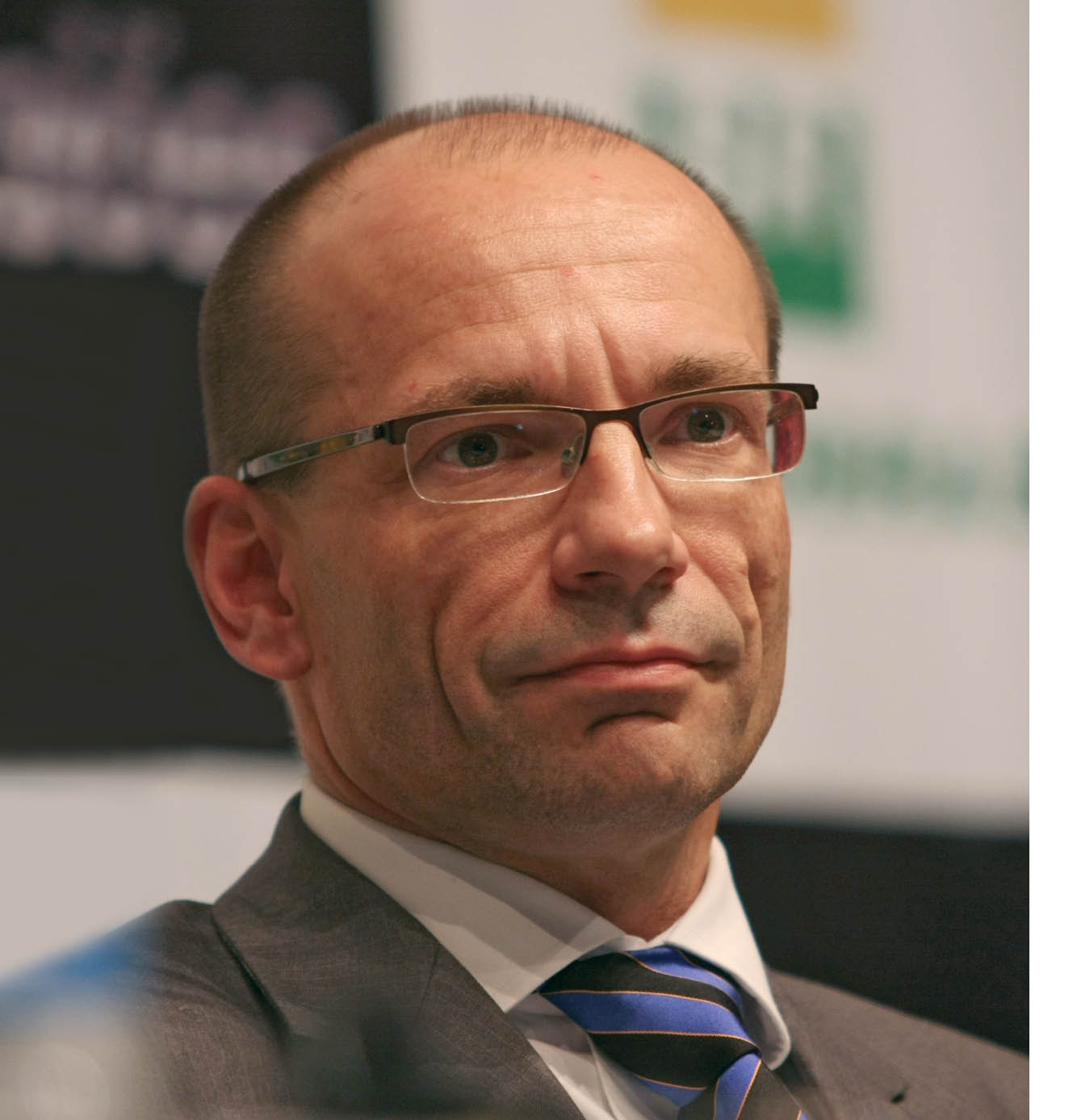Lutz Guderjahn
President of the eBio - European Bioethanol Fuel Association
Op-AA-26
Ethanol in Europe
The combination of global warming, dwindling fossil energy reserves, and population growth represents a historic challenge to the public and private sectors alike. According to UN estimates, the global population will increase by more than 75 million people each year over the next few years. Food and energy supplies will have to meet the resulting demand.
In addition, the economic upturn in developing countries such as China also brings with it higher demand for energy and agricultural raw materials. As the economy grows, more energy is needed, and as populations’ standards of living rise, people will consume more animal products, thereby indirectly increasing consumption of grain and oilseeds. However, this increasing economic activity will also increase greenhouse gas emissions.
It is becoming more difficult to meet increased demand. Fossil energy reserves are limited and will begin falling short of demand as early as 2012. New sources are more difficult to develop, driving up the costs of oil production and exacerbating environmental risks, increasing emissions. In the future, we will need to focus more on sustainable management, to assure future generations’ access to essential resources.
Climate protection, responsible use of resources and limited space will be higher priorities. Biofuels like ethanol can make a valuable contribution. The fact that ethanol has a bright future was acknowledged early on by the automotive industry, but ethanol did not become firmly established as an alternative fuel until its development took hold in Brazil.
European countries did not make the same consistent efforts to develop ethanol. It was not until 2003, when the EU passed its biofuels directive, that a dynamic development began to take shape in the buildup of production capacity. In Brazil and the USA support for the ethanol market is based on governmental considerations regarding energy and trade policy, while in Europe this is chiefly motivated by climate policy.
As a result, biofuels can only represent a viable alternative to fossil fuels if they are produced sustainably, bring reductions in greenhouse gas emissions, and do not affect the food supply. Biofuels also have to be cost-effective. In 2009, ethanol made up just 2.3% of the gasoline market in the EU. With the renewable energy directive that went into effect in June 2009, however, the EU charted a course toward the dynamic market development of ethanol, with a target of 10% for renewable energy use in the transport sector by 2020.
 Sustainability criteria are supposed to ensure that the biofuels used, and the requisite biomass, are produced sustainably, in compliance with specific standards. The European ethanol industry has supported the introduction of these sustainability criteria. Biofuels will be required to generate 35% less greenhouse gases than fossil fuels in the future – and, starting in 2017, 50%. We view this as an opportunity to compete on the international stage.
Sustainability criteria are supposed to ensure that the biofuels used, and the requisite biomass, are produced sustainably, in compliance with specific standards. The European ethanol industry has supported the introduction of these sustainability criteria. Biofuels will be required to generate 35% less greenhouse gases than fossil fuels in the future – and, starting in 2017, 50%. We view this as an opportunity to compete on the international stage.
Regulations call for crop rotation and restrict the use of chemicals, while also ensuring that land areas viewed as of high ecological value are not used to cultivate raw materials for biofuel production. The political discussion of biofuels in Europe centers on the topic of indirect land use changes and how to take these effects into account when calculating emission reductions.
We speak of indirect land use changes when production of food and animal feed is displaced by cultivation of plants used as an energy source and pushed into areas not previously used for agriculture. Various studies have shown that indirect land use changes as a result of the expansion of the biofuel industry in Europe play a secondary role, since local raw materials are processed there.
The studies point out that indirect land use changes for ethanol produced outside of Europe can indeed have a significant impact. Another requirement for the production of biofuels is that their impact on food and animal feed production must be minor.
As a result, it is very important to ensure that the limited space available for agriculture is used efficiently for the production of agricultural raw materials for both food and biofuels. The fact that the land is being used efficiently is evident if we consider that to produce the same amount of plant-based protein generated as a byproduct of ethanol production from a single hectare of wheat grown in Europe, about 1.3 hectares of soybeans would have to be grown in South America.
This means that viewed from a global standpoint, ethanol production in Europe does not take land away from food production, but in fact frees up land in other parts of the world for the production of food or raw materials for biofuels. Another factor showing that ethanol production is a good fit for Europe is that the EU is traditionally a region characterized by surpluses of agricultural raw materials containing sugar and starch and a deficit of plant-based proteins.
By building up its own ethanol production sector, the EU is making use of these structural surpluses of grain and sugar to reduce its dependency on imports of energy and protein. Looking ahead – particularly to 2020, when 10% of the energy used in the transport sector will have to come from renewable sources – the EU clearly stated that there is enough agricultural land available to meet this target, and that the impact of biofuel production on the agricultural markets is minor.
As Brazil’s example clearly shows, how competitive ethanol is by comparison to fossil fuels is an important determining factor when it comes to market penetration. Thanks to the spread of flexible-fuel vehicles, the decision whether to fill the tank with ethanol or gasoline is entirely up to the customer. That is unfortunately not yet the case in Europe. It is a regrettable situation, since ethanol became cheaper than gas just this past spring, much earlier than expected. Rising oil prices, coupled with advances in productivity in the European ethanol industry, will mean that this is no isolated case.
Unlike the situation in Brazil, such cost advantages have a limited impact on ethanol sales in Europe. European ethanol production still needs dependable ground rules. The EU’s renewable energy directive is a major milestone. We will need to ensure that the same ground rules apply to all of the players, at all levels of the value chain.
What that means is, first, that the same conditions apply to the production of agricultural raw materials, regardless of whether they are processed to make food, chemicals, or biofuels. Second, we need to arrive at a realistic picture of the greenhouse gas emissions of fossil fuels, and not use a reference value that now applies to only a small portion of the total oil production.
Third, the same requirements have to apply to biofuel producers, especially as regards meeting the sustainability criteria. This also requires that we take regional conditions into account. European ethanol production will have to rely on its own ethanol industry if it is to achieve the ambitious targets set by the European Union.




